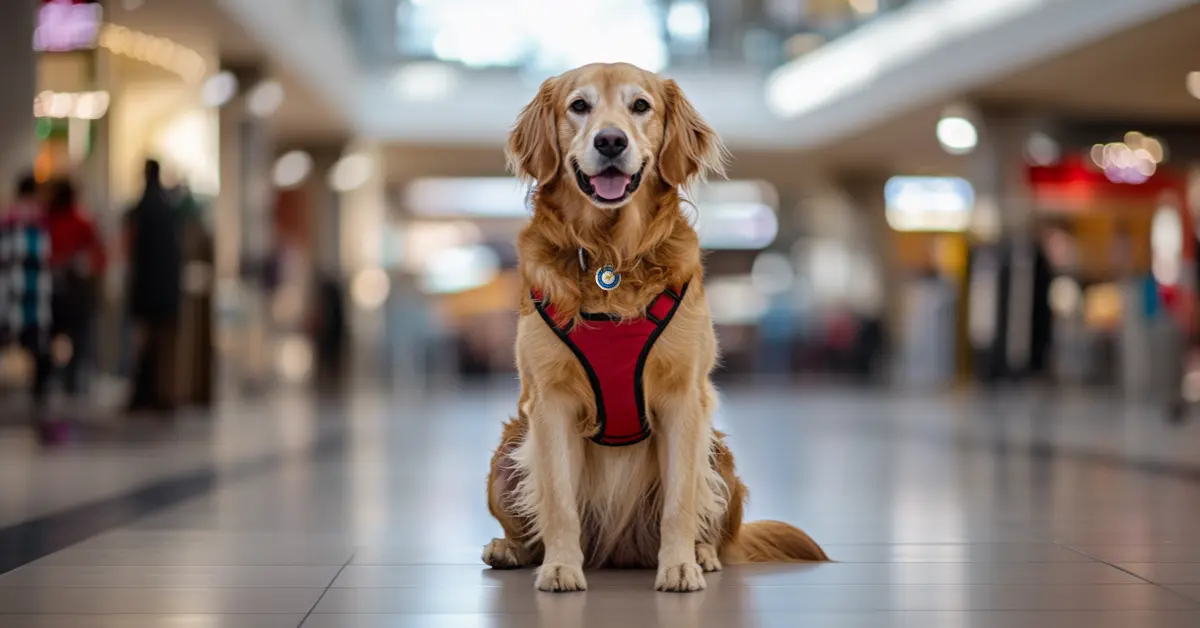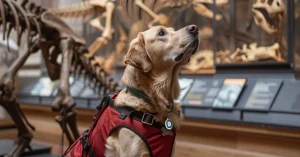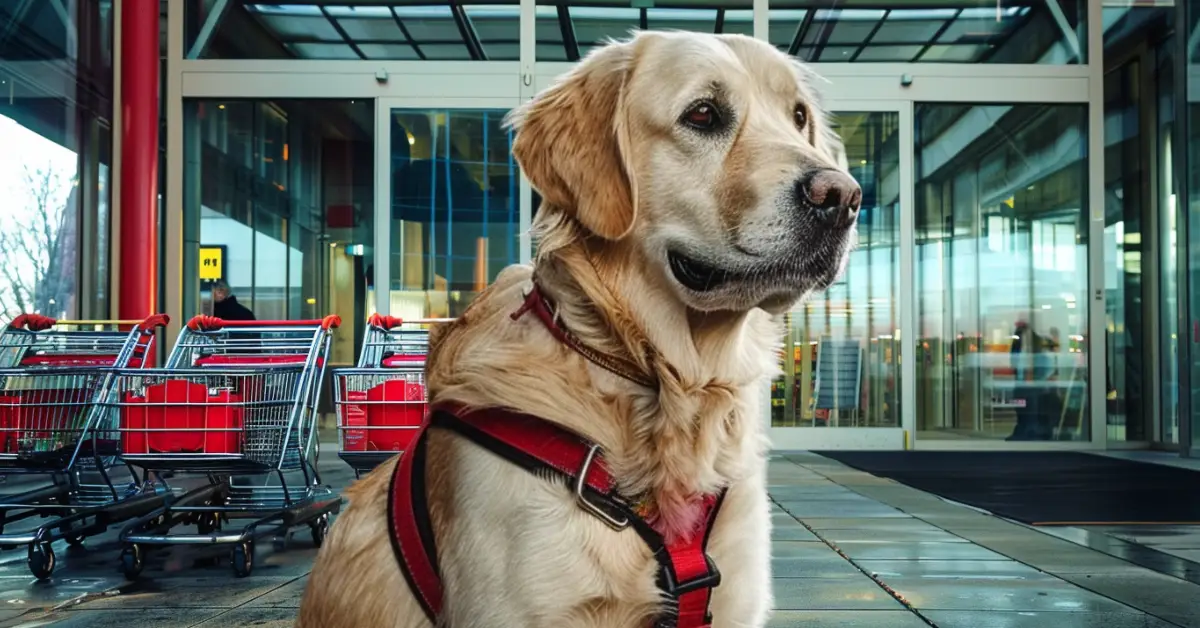Can You Bring a Service Dog to the Mall?

Shopping can be challenging for people with disabilities, but service dogs make it easier. If you have a service dog or want to understand their rights, this guide will help you navigate mall visits with confidence.
What makes a dog a service animal?
Not every dog is a service animal. Under the law, a service dog is specially trained to help someone with a disability. These amazing animals can do jobs like:
- Helping blind people move around safely
- Alerting deaf people to important sounds
- Helping people in wheelchairs
- Guiding someone who has trouble walking
- Picking up dropped items
- Helping people with mental health conditions stay calm
Your Legal Rights in the Mall
The Americans with Disabilities Act (ADA) gives service dogs access to public spaces. This means your service dog can go everywhere in the mall that other shoppers can go. Stores, food courts, and common areas are all open to service dogs.
What Mall Staff Can Ask
Mall workers have very limited questions they can ask you:
- Is your dog a service animal required because of a disability?
- What work or task has the dog been trained to perform?
They CANNOT ask you:
- About your specific disability
- To show papers or certifications to prove your dog is a service animal
- To make your dog perform the task(s) it has been trained to perform
Policies at Major U.S. Shopping Malls
Notable shopping centers like the Mall of America in Bloomington, MN, and the Westfield World Trade Center in New York City have information about their animal policies on their websites. All in all, they mostly say the same thing as the federal law.
Mall of America, Bloomington, MN
The Mall of America has a policy that matches government regulations: “Only Service Animals (as defined by the ADA) trained to assist persons with disabilities are permitted within Mall of America.” No pets, therapy animals, or emotional support animals are allowed in the Mall.
Westfield World Trade Center, NYC
The World Trade Center in Manhattan bans all animals from their premises except “properly certified and identified service animal[s] in the course of performing service.” While the ADA does not require proof of certification or identification, having some form of service dog ID or making the dog’s working status visible may streamline the experience and prevent unwelcome questions from staff.
ADA Provisions for Service Dogs
It’s important to keep in mind that ADA guidelines explicitly state that service dogs are not required to have any kind of certifications nor identification of their service animal status. Additionally, there are only two scenarios where a service dog could be denied access per the ADA.
The first case in which service dogs can be denied access to businesses or facilities is when their presence would “fundamentally alter the nature of the goods, services, programs, or activities provided to the public” — in other words, where allowing a dog would make the business not be able to do what it does.
If the dog does not “fundamentally alter” the business, it can still be asked to leave if it is:
- Not housebroken, or
- Out of control, and the handler cannot get the dog under control.
Except for these rare circumstances, service dogs must be allowed access to businesses by law, including malls and shopping centers.
Handler Responsibilities
While service dogs have special access, handlers must follow important rules:
- Keep the dog under control at all times
- Make sure the dog doesn’t disrupt other shoppers
- Keep the dog clean and well-behaved
- Be ready to remove the dog if it becomes uncontrollable
If you follow these steps, your shopping experience will be easier and less interrupted.

Important Differences to Know
Emotional support animals are not the same as service dogs. Service dogs have special training to do specific tasks, while emotional support animals just provide comfort.
Tips for a Smooth Shopping Trip
Before heading to the mall with your service dog:
- Plan your route
- Bring water and waste bags
- Be ready to explain your dog’s role if asked
- Stay calm and confident
Why Service Dogs Matter
Service dogs are more than just pets. They’re working animals that help people with disabilities live more independently. Malls and other public spaces are required to welcome these incredible animals.
By understanding your rights and responsibilities, you can enjoy shopping with your service dog and help create a more inclusive world for everyone.
About the Author: The writing team at Service Dog Certifications is made up of folks who really know their stuff when it comes to disability laws and assistance animals. Many of our writers and editors have service dogs themselves and share insights from their own experiences. All of us have a passion for disability rights and animals.
1 comment
Leave a Reply Cancel reply
Latest Posts

Can you bring a service dog to a museum?
Yes, you can bring your service dog to the museum! All the major U.S. museums welcome guests with service animals in accordance with the Americans with Disabilities Act (ADA). There are some areas, however, that might be off-limits. Here’s what you should know if you plan to spend a day at the museum with your […]

Read More

How to Bring a Service Dog to Six Flags Magic Mountain
Service dogs are welcome at Six Flags Magic Mountain so long as they are, according to Six Flags, “trained to do work or perform tasks for people with disabilities.” Of course, your dog must be housebroken and remain on a leash or harness and under your control while at the park — and the park […]

Read More

When Stores Can Refuse Your Service Dog
According to the Americans with Disabilities Act (ADA), service dogs should be allowed into any store most of the time. A store owner can legally exclude a service dog if they are actively growling, snapping at, or frightening customers, or if the dog is obviously out of the control of its owner. Ordinary behaviors — […]

Read More
God bless your heart and soul and love. For the information. Yours truly Cinco and Pamela.